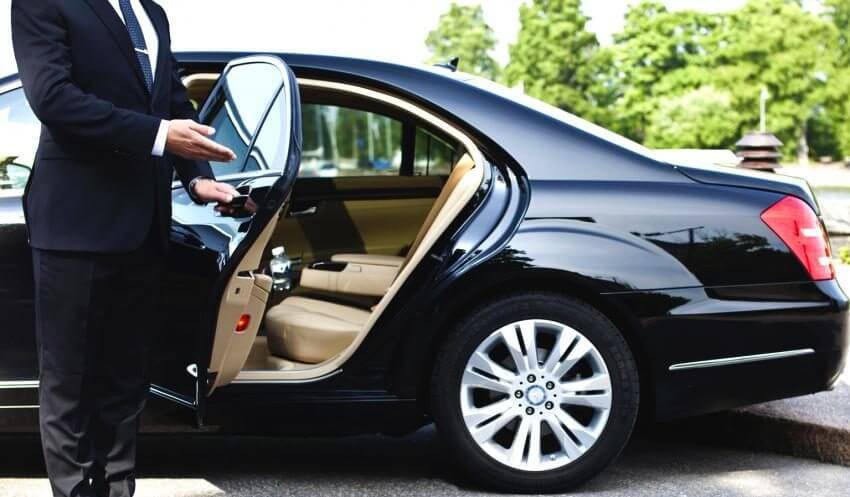Logistics management is a critical component in organizing successful large events. From corporate conferences to grand weddings, ensuring seamless transportation is essential. Coordinating car rentals with drivers involves meticulous planning and execution, especially when dealing with high-profile guests or large groups. This article delves into the strategies and considerations necessary for effective logistics management in this context, focusing on key elements such as planning, coordination, and execution.
Understanding the Basics of Car Rental Logistics
Logistics management for car rentals involves multiple layers of planning and execution. The primary objective is to ensure that attendees reach their destinations comfortably and on time. This requires understanding the event’s scale, the number of guests, and their specific transportation needs. Additionally, choosing the right type of vehicles and reliable drivers is crucial.
Planning Stage
Assessing Event Requirements
The first step in planning is to assess the event’s transportation requirements. This involves:
- Determining the number of guests.
- Understanding their transportation needs.
- Identifying key locations such as hotels, event venues, and airports.
Selecting the Right Vehicles
Choosing the appropriate vehicles is vital for meeting the diverse needs of event attendees. For instance, luxury sedans or SUVs might be ideal for VIP guests, while mini buses or coaches are suitable for larger groups. Factors to consider include:
- Comfort and safety features
- Capacity and space
- Fuel efficiency

Partnering with Reliable Car Rental Services
Choosing Reputable Companies
Partnering with reputable car rental services is essential for ensuring quality and reliability. Look for companies with a proven track record, positive customer reviews, and a wide range of vehicles. Additionally, it’s beneficial to choose providers experienced in handling large events.
Negotiating Contracts and Rates
Negotiating contracts and rates can help manage costs effectively. Ensure that all terms, including vehicle availability, driver services, and insurance coverage, are clearly defined. Bulk bookings often attract discounts, which can be advantageous for large events.
Coordination and Communication
Centralized Coordination
Centralized coordination is critical for efficient logistics management. Appointing a dedicated team or coordinator ensures streamlined communication and decision-making. This team should handle all transportation-related tasks, from booking vehicles to managing schedules.
Real-Time Communication Tools
Utilizing real-time communication tools can significantly enhance coordination. Mobile apps and communication platforms like Slack or WhatsApp facilitate instant updates and help manage last-minute changes efficiently. These tools are particularly useful for coordinating with drivers and car rental services.

Execution and Monitoring
Driver Training and Briefing
Well-trained drivers are essential for a smooth transportation experience. Ensure that all drivers are briefed about the event schedule, routes, and specific requirements. Emphasize the importance of punctuality, professionalism, and guest comfort.
Implementing a Monitoring System
Implementing a monitoring system allows real-time tracking of vehicles. GPS tracking devices enable coordinators to monitor the movement of vehicles, ensuring timely arrivals and departures. This also helps in managing any unforeseen delays or issues.

Managing Unexpected Challenges
Contingency Planning
Despite meticulous planning, unexpected challenges can arise. Developing a contingency plan is essential to handle such situations effectively. This includes having backup vehicles and drivers on standby and alternative routes mapped out in advance.
Handling Last-Minute Changes
Flexibility is crucial in logistics management. Be prepared to handle last-minute changes in guest schedules or transportation needs. Maintaining open communication lines with car rental services and drivers ensures quick adaptation to changes.
Post-Event Review and Feedback
Conducting a Thorough Review
After the event, conduct a thorough review of the transportation logistics. Assess what worked well and identify areas for improvement. Collecting feedback from guests and drivers provides valuable insights for future events.
Implementing Improvements
Use the feedback and review findings to implement improvements in future logistics planning. Continuous enhancement of processes ensures better efficiency and guest satisfaction in subsequent events.
Importance of Safety and Compliance
Adhering to Safety Regulations
Safety is paramount in transportation logistics. Ensure that all vehicles comply with local safety regulations and standards. Drivers should possess the necessary licenses and training. Regular vehicle maintenance checks are essential to avoid breakdowns.
Insurance and Liability
Adequate insurance coverage is crucial for mitigating risks. Ensure that both vehicles and passengers are covered by comprehensive insurance policies. Clarify liability terms with car rental services to avoid any legal complications.
Special Considerations for High-Profile Events
Luxury Chauffeur Services
For high-profile events, consider hiring luxury chauffeur services. These services offer premium vehicles and highly professional drivers, enhancing the overall experience for VIP guests. In cities like Dubai, opting for a luxury chauffeur service in Dubai ensures a superior level of comfort and convenience for attendees.
Enhanced Security Measures
High-profile events often require enhanced security measures. Coordinate with security personnel to ensure safe and secure transportation for all guests. This might involve background checks for drivers and additional security escorts for VIP guests.
Environmental Considerations
Eco-Friendly Transportation Options
As environmental concerns grow, incorporating eco-friendly transportation options is becoming increasingly important. Consider hiring hybrid or electric vehicles for the event. This not only reduces the carbon footprint but also aligns with the growing preference for sustainable practices.
Promoting Carpooling
Encouraging carpooling among guests is another effective way to minimize environmental impact. Coordinating shared rides reduces the number of vehicles on the road, leading to lower emissions and less traffic congestion.
Conclusion
Coordinating car rentals with drivers for large events requires a strategic and detailed approach. From assessing event requirements to executing transportation plans, every step must be meticulously planned and managed. Effective logistics management ensures that guests have a smooth and comfortable experience, contributing to the overall success of the event. By partnering with reliable car rental services, implementing robust coordination tools, and focusing on safety and sustainability, event organizers can achieve seamless transportation logistics for any large-scale event.
For more information on local regulations and standards for car rentals and drivers, visit the official Dubai Roads and Transport Authority (RTA) website.

Skateboarder, ninja, guitarist, Mad Men fan and creative consultant. Doing at the sweet spot between modernism and programing to develop visual solutions that inform and persuade. Let’s design a world that’s thoughtful, considered and aesthetically pleasing.






